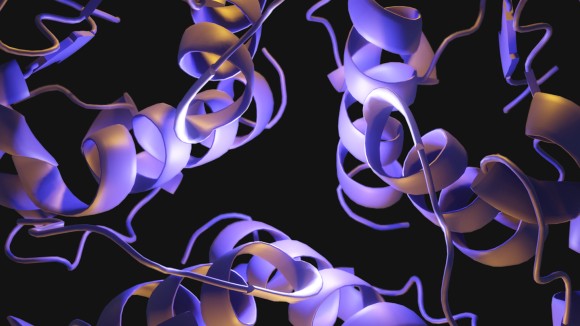This Milestone is editorially independent, produced with financial support from a third party. About this content.
Click on the thumbnail below to select the video you would like to watch.
The artificial pancreas: a bridge to a cure
Tight control of blood glucose levels is vital for people with diabetes to lead healthy lives. But this challenge is no small undertaking, requiring careful monitoring of the diet and blood glucose levels, and regular insulin injections. One solution might be the development of the artificial pancreas; a device that monitors blood glucose levels and administers insulin automatically, but they are not yet widely available. Dr Helen Murphy, Clinical Professor in Medicine at Norwich Medical School, University of East Anglia, UK, takes us through her work with such devices – could they represent a bridge to a cure for people with diabetes?
The discovery of insulin
Nearly 100 years since insulin was first used in the treatment of diabetes, Professor Chantal Mathieu, Professor of Medicine at the Katholieke Universiteit Leuven, Belgium, takes us through the history, development and future of this life saving drug.
Diabetes in sub-Saharan Africa
It is estimated that over 19 million adults in Africa have diabetes, an enormous problem that Professor Jean Claude Mbanya, Professor of Medicine and Endocrinology at the University of Yaoundé I, Cameroon, understands all too well. Here he takes us through the unique challenges and pitfalls of treating patients with diabetes in sub-Saharan Africa.
Insulin and islets: understanding diabetes
Type 1 and type 2 diabetes are characterized by increased blood glucose levels. They affect almost half a billion people around the globe, and this number is projected to rise as we reach the middle of the century. In most individuals, blood glucose levels are kept within a healthy range by a hormone called insulin, which is secreted by the pancreas, but this fine-tuned regulation can go wrong in type 1 and type 2 diabetes. In this animation, we lay out our current understanding of these diseases and explore active areas of research that aim to restore the body's blood glucose control.




